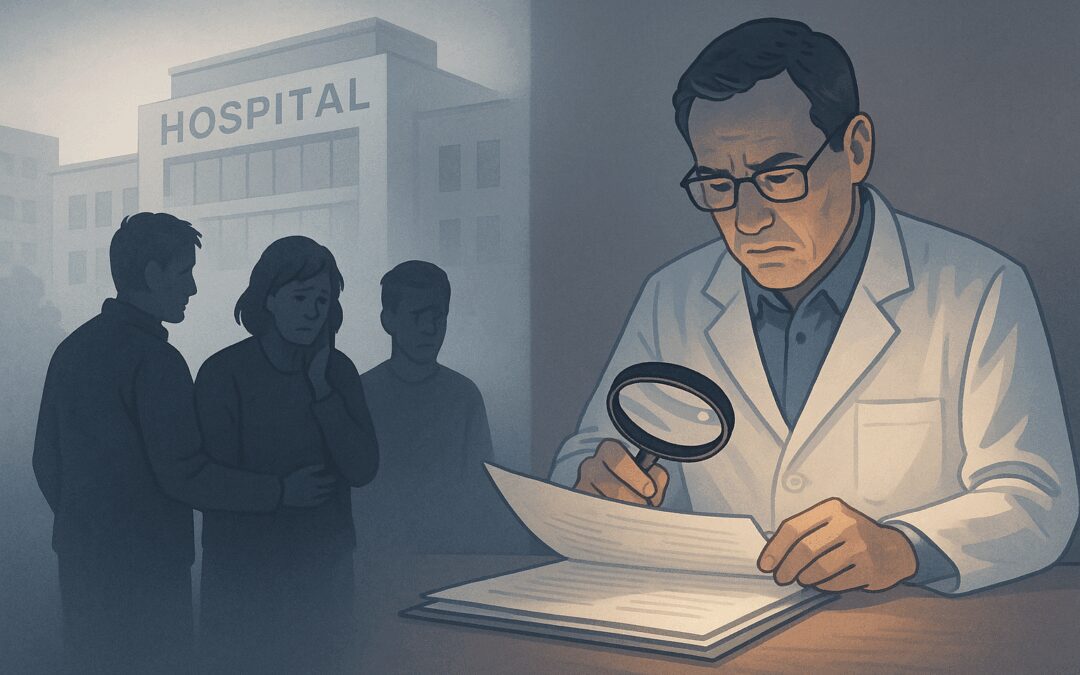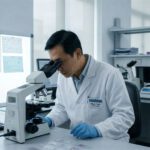The hospital room fell silent as the family processed the devastating news. Their loved one had passed away unexpectedly during what was supposed to be a routine procedure. Questions flooded their minds: Could this death have been prevented? Was proper care provided? Did medical errors contribute to this tragic outcome?
For thousands of families across the United States, these painful questions become the catalyst for seeking answers through a private autopsy. When unexpected deaths occur in medical settings, families often find themselves caught between grief and the desperate need for truth.
Understanding Private Autopsy Services
A private autopsy represents an independent postmortem examination conducted by qualified forensic pathologists outside the hospital or coroner system. Unlike hospital autopsies, which may be performed by pathologists affiliated with the institution where the death occurred, private autopsies offer complete independence from any medical facility involved in the patient’s care.
Families choose private autopsy services when they suspect medical negligence discovery may be necessary. These comprehensive examinations provide detailed cause of death review that can reveal critical information often overlooked in standard hospital reviews. The independent nature of these examinations ensures that no institutional bias influences the findings.
The process begins when families contact specialized autopsy services that focus on providing thorough, unbiased medical evaluations. These services employ board-certified forensic pathologists who have extensive experience in identifying medical errors and conducting detailed tissue analysis.
Detecting Medical Errors Through Independent Examination
Medical errors occur more frequently than many people realize. Studies suggest that diagnostic errors, surgical complications, medication mistakes, and treatment delays contribute to thousands of preventable deaths annually. However, these errors often remain hidden within complex medical records and institutional review processes.
A private autopsy can uncover evidence that standard hospital reviews might miss. Forensic pathologists examine tissues, organs, and bodily fluids with meticulous attention to detail. They look for signs of medication toxicity, surgical complications, missed diagnoses, or improper treatment protocols.
The autopsy medical review process involves several critical steps. Pathologists first examine all available medical records to understand the treatment timeline. They then perform a comprehensive physical examination of the body, documenting any abnormalities or evidence of medical intervention. Tissue samples are collected and analyzed under microscopic examination to identify cellular changes that might indicate medical negligence.
Case Studies in Misdiagnosis Detection
Consider the story of a middle-aged patient who sought treatment for persistent chest pain. Hospital physicians diagnosed anxiety and discharged him with sedatives. Within hours, he collapsed and died at home. His family’s grief transformed into suspicion when they learned about his repeated attempts to communicate the severity of his symptoms.
The family commissioned a private autopsy that revealed massive heart damage consistent with a recent heart attack. The forensic pathology examination showed clear evidence that cardiac enzymes and other diagnostic markers should have been elevated during his hospital visit. This misdiagnosis detection became crucial evidence in their wrongful death investigation.
Another case involved a surgical patient who died from complications following what appeared to be a successful operation. The hospital attributed the death to pre-existing conditions and natural complications. However, a second opinion autopsy revealed surgical instruments left inside the body cavity, causing severe internal bleeding and infection.
These cases demonstrate how independent autopsy services can reveal critical information that changes the entire narrative of a patient’s death. The forensic pathologists conducting these examinations have no institutional loyalty that might influence their findings.
Legal Implications and Malpractice Evidence
Private autopsies often provide the foundation for autopsy and legal cases involving medical malpractice claims. When families suspect that medical negligence contributed to their loved one’s death, they need concrete evidence to support their suspicions. An independent postmortem examination can provide the medical documentation necessary for legal proceedings.
Attorneys specializing in medical malpractice frequently recommend private autopsies when hospital deaths involve suspicious circumstances. These examinations create detailed documentation that can be used in court proceedings. The independent nature of the examination adds credibility to the findings, as the pathologist has no relationship with the medical facility or physicians involved in the original care.
The malpractice evidence gathered during a private autopsy can reveal various forms of medical negligence. These might include failure to diagnose serious conditions, improper medication administration, surgical errors, inadequate monitoring, or failure to respond appropriately to medical emergencies.
The Process of Autopsy for Families
Families considering a private autopsy often feel overwhelmed by grief and uncertainty about the process. Understanding what to expect can help families make informed decisions about pursuing an independent examination.
The process typically begins with a consultation where forensic pathologists review available medical records and discuss the family’s concerns. They explain what a comprehensive autopsy can and cannot determine, helping families understand realistic expectations for the examination.
Time sensitivity plays a crucial role in autopsy effectiveness. The sooner an examination occurs after death, the more information pathologists can gather. However, even when some time has passed, significant evidence of medical errors or misdiagnosis may still be discoverable through careful examination.
The actual autopsy involves external and internal examination of the body. Pathologists document all findings with photographs and detailed written reports. They collect tissue samples for microscopic analysis and may perform additional tests such as toxicology screening when appropriate.
Benefits of Second Opinion Autopsy Services
Many families find comfort in seeking a second opinion autopsy, even when an initial hospital autopsy has been performed. Hospital autopsies may be conducted by pathologists who work within the same medical system where the death occurred, potentially creating conflicts of interest.
Independent autopsy services provide objective analysis free from institutional pressure. These pathologists focus solely on determining the actual cause of death and identifying any evidence of medical negligence discovery. Their findings may confirm or contradict the conclusions of hospital-based examinations.
The comprehensive nature of private autopsies often reveals information that standard hospital reviews miss. Forensic pathologists specializing in medical malpractice cases know what signs to look for and how to document their findings in ways that can support legal proceedings if necessary.
Forensic Pathology and Medical Review Standards
Forensic pathology represents a specialized field of medicine focused on determining causes of death through scientific examination. Pathologists who conduct private autopsies typically have advanced training in recognizing signs of medical errors, surgical complications, and treatment-related deaths.
These specialists understand the complex relationship between medical treatment and patient outcomes. They can differentiate between natural disease progression and complications resulting from medical intervention. This expertise proves crucial when families suspect that medical errors contributed to their loved one’s death.
The autopsy medical review process follows strict scientific protocols designed to ensure accurate and unbiased findings. Pathologists document all observations, collect appropriate tissue samples, and perform necessary laboratory tests to support their conclusions.
Providing Answers and Closure for Families
Beyond the potential legal implications, private autopsies serve an important emotional function for grieving families. The uncertainty surrounding an unexpected death can complicate the mourning process and prevent families from finding peace.
A comprehensive cause of death review provides families with concrete answers about what happened to their loved one. Even when the autopsy confirms that no medical errors occurred, families often find comfort in knowing they explored all possibilities and received independent verification of the circumstances surrounding the death.
For families who discover evidence of medical negligence through private autopsy, the findings can provide validation for their suspicions and concerns. This validation often proves essential for families’ emotional healing and their ability to move forward with their lives.
Making Informed Decisions About Private Autopsy
Families considering a private autopsy should understand both the potential benefits and limitations of these examinations. While forensic pathology can reveal significant information about medical care and treatment outcomes, autopsies cannot always provide definitive answers to every question families might have.
The decision to pursue an independent autopsy requires careful consideration of timing, cost, and emotional readiness. Families should work with experienced autopsy services that can guide them through the process and help them understand what information the examination might reveal.
Private autopsy services in areas like La Crescenta, California, provide families with access to qualified forensic pathologists who specialize in medical malpractice cases. These professionals understand the unique challenges families face when seeking answers about unexpected deaths in medical settings.
Finding Truth Through Independent Examination
Private autopsies play a vital role in detecting medical malpractice and providing families with answers about unexpected deaths. Through independent postmortem examination, forensic pathologists can identify medical errors, misdiagnosis, and treatment complications that might otherwise remain hidden.
For families grappling with questions about their loved one’s medical care, a private autopsy offers an objective path to understanding what truly happened. Whether the examination reveals evidence of medical negligence or confirms that proper care was provided, families gain the knowledge they need to find closure and make informed decisions about their future.
The investment in a private autopsy represents more than just a medical examination—it provides families with truth, validation, and the foundation for healing in the aftermath of unexpected loss.








